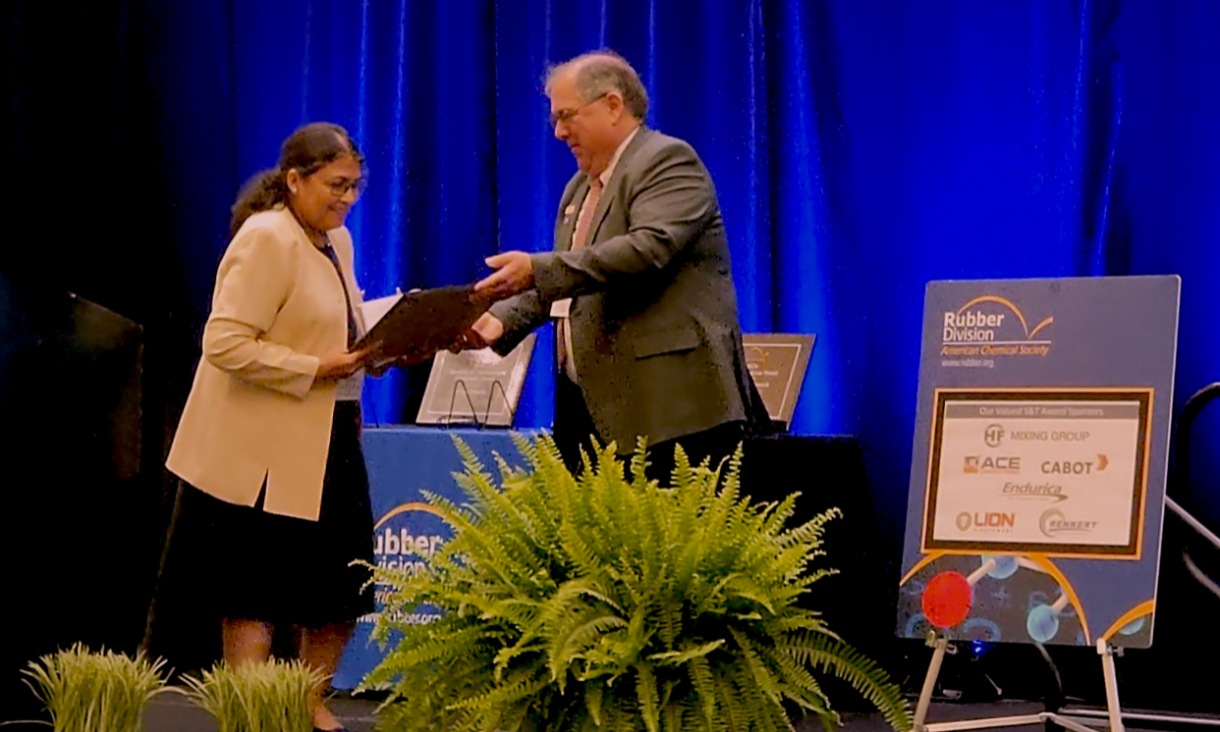This isn’t the first time her research has had a major impact. Early in her career, Choudhury collaborated with Bridgestone on understanding the consequences of surface modification of carbon black and its interaction with elastomer and reinforcement mechanism on their performance and durability of rubber products like automotive tyres and window seals.
Later working with Castrol Australia, Choudhury developed the concept of the role of the stratified elastomer in forming a thin, lubricating film layer on the engine, which was fundamental to the development of Castrol’s ‘Magnatech’ lubricant for automotive engines, and of significant industrial importance, with applications in both engineering and bio-medical fields.
Eventually she became a senior research leader working with industry to make everything from engine lubricants many of us use in our cars today, to better rubber window seals and cutting-edge biomedical technology to help bind wet wounds.
Her latest research in protein biomimicry, inspired by incredible native elastic protein ‘Resilin’ - that allows fleas to jump greater than 150 times their height and mosquitoes to beat their wings 600 times per second - to produce a new flexible gel for degenerated disc repair and bio adhesive materials for surgery applications, where it can tackle the difficult task of binding wet wounds.
Recently, upon invitation from the Royal Society of Chemistry (RSC) and together with her colleagues Professor Naba Dutta RMIT and Professor Julie Liu from Purdue University, she has coedited and published a book on “Biomimetic Protein based Elastomers: Emerging Materials for the Future” in 2022.
Choudhury said that it was her diverse career experiences that made her teaching, research and way of working unique.
“I strive to push the boundary, deep dive into a territory that has immense future potential and make an impact,” she said.
“This journey of discovering the experience and experiencing the discovery, is challenging but also rewarding.”
During her trip to the US to receive the award, Choudhury had the opportunity to interact with the North American scientific community, including attending an ACS technical meeting. She said she was struck by the societal relevance of the research being conducted.
“I noted that the major focus of the scientific community in the US has also embraced the current geopolitical threat, climate change risk and critical raw material supply shortage issue of commodities of global importance,” she said.
“Consequently, it has steered the researchers to search for a solution to sustainability -whether it is raw materials or environmental pollution before it is too late.”
Choudhury said she still has lots to achieve in her career, particularly in the field of soft materials for health care and renewable energy.
“Using bioinspired approaches, our team is pushing the boundaries of material development from petroleum-based resources to completely renewable resources that give us a sustainable future,” she said.
“In the spirit of this award, I also want to use this platform to empower our next generation cohort to take risk and explore the unknowns ahead of us.”
“My ambition is the team will reach great heights, with more discoveries with our tireless dedication to excellence and passion in research in this area at RMIT University, which brings excitement, pride and prestige to the University and for Australia in general.”
Choudhury acknowledges the support of the Australian Research Council for her research.
Story: Finn Devlin








